Our Library
Explore our publications, from research papers and series to educational materials, covering all aspects of conflict transformation and peace promotion.
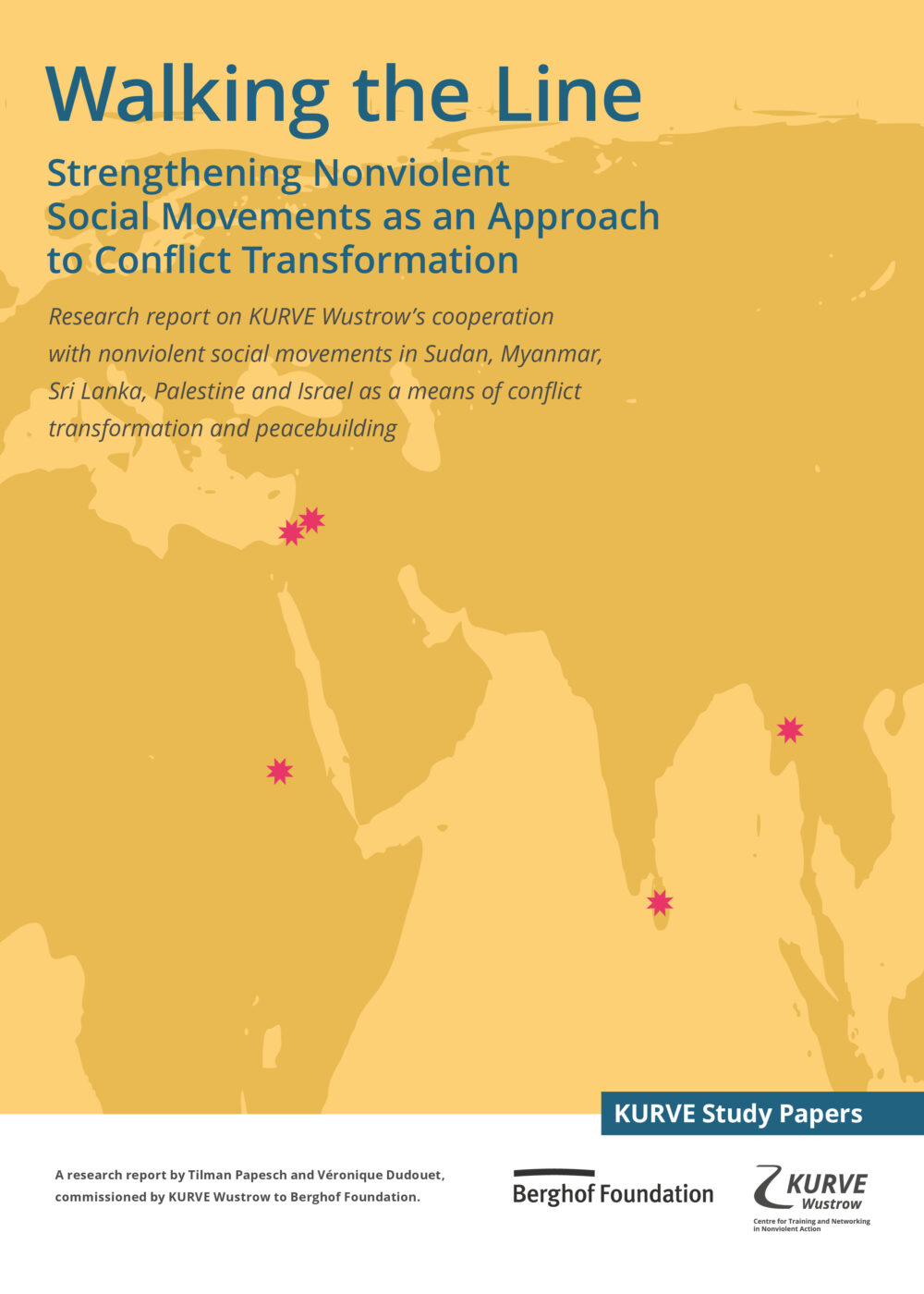
Walking the lineStrengthening nonviolent social movement as an approach to conflict transformation
The research report offers a detailed analysis of KURVE Wustrow's unique cooperation with nonviolent social movements and is based on the lessons learned from working with movements in Sudan, Myanmar, Sri Lanka, Palestine and Israel with the aim of supporting their contributions to peace and justice.
- Year2025
- Author(s)Véronique Dudouet, Tilman Papesch
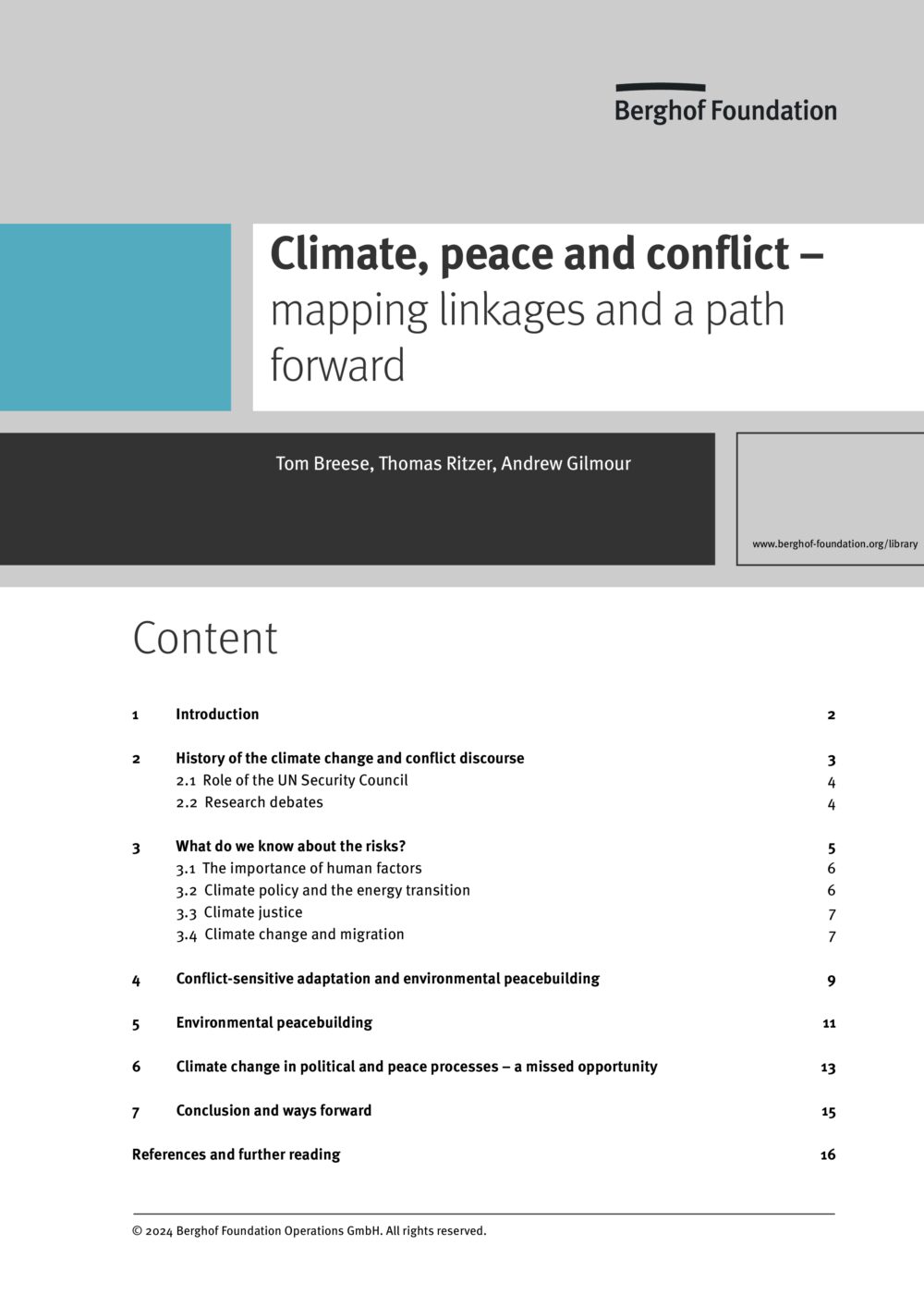
Climate, peace and conflictMapping linkages and a path forward
Despite the increasingly evident intersection of climate and conflict risks, the two communities continue to operate in separate spheres, each relying on distinct approaches and taxonomies that have evolved over decades. However, recent efforts promote better alignment of climate action and peacebuilding strategies to maximize their impact and advance shared ambitions of creating resilient, inclusive, and prosperous societies. This paper seeks to provide an overview of the evolving climate, peace and conflict field, exploring key principles essential for peacebuilding and mediation support actors and highlighting successful initiatives that exemplify these principles in action.
- Year2024
- Author(s)Tom Breese, Thomas Ritzer, Andrew Gilmour
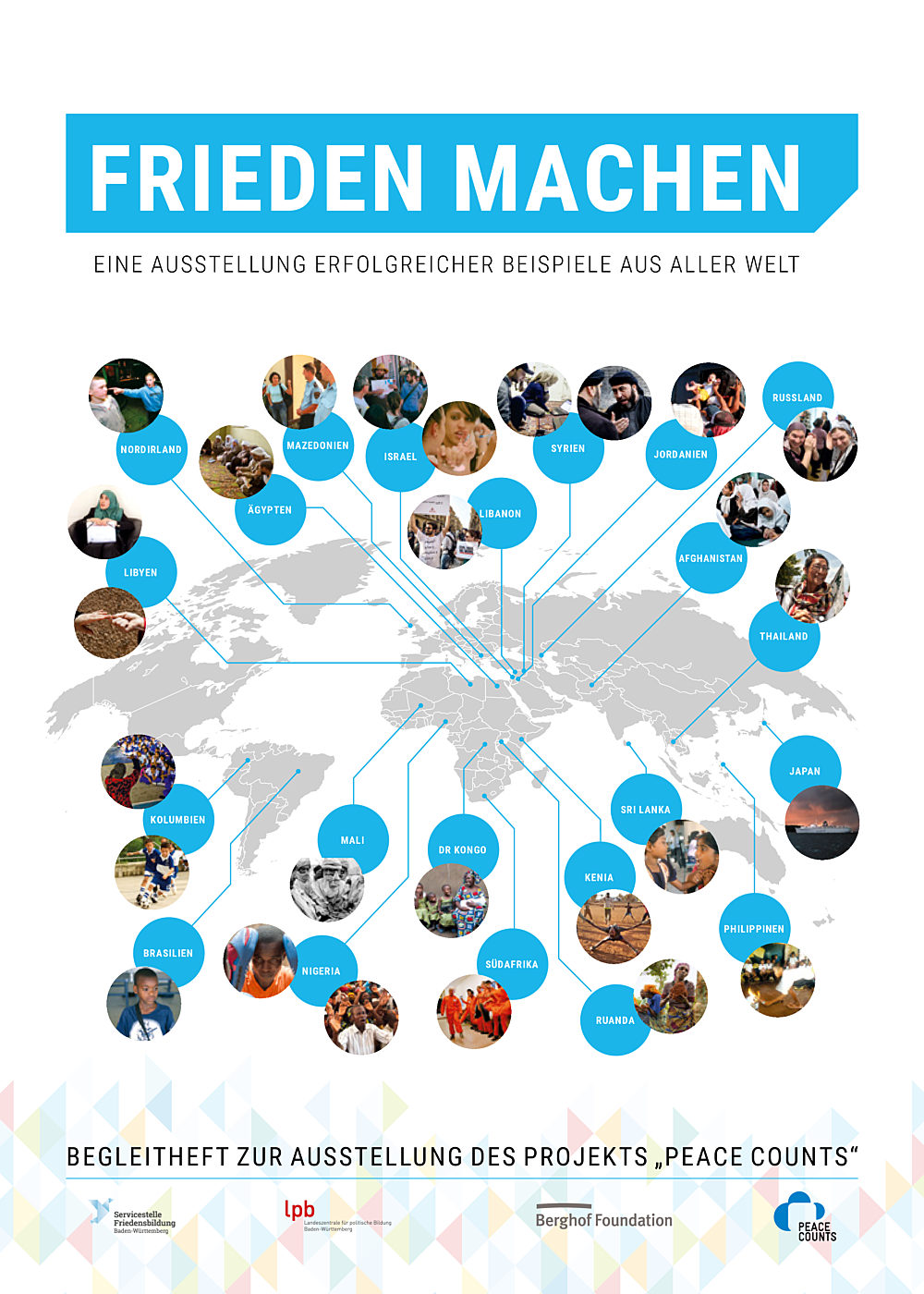
Frieden Machen: Eine Ausstellung erfolgreicher Beispiele aus aller WeltBegleitheft zur Ausstellung des Projekts Peace Counts
Die Roll-up Ausstellung zeigt eine Auswahl der besten Reportagen erfolgreicher Friedensprojekte aus rund 30 Konfliktregionen der Welt. In der zweiten Auflage unseres Begleithefts zur Ausstellung finden Sie didaktische Anregungen speziell für den Schulunterricht, aber auch andere außerschulische Lernräume.
- Year2024
- Author(s)Janna Articus, Anne Kruck, Claudia Möller
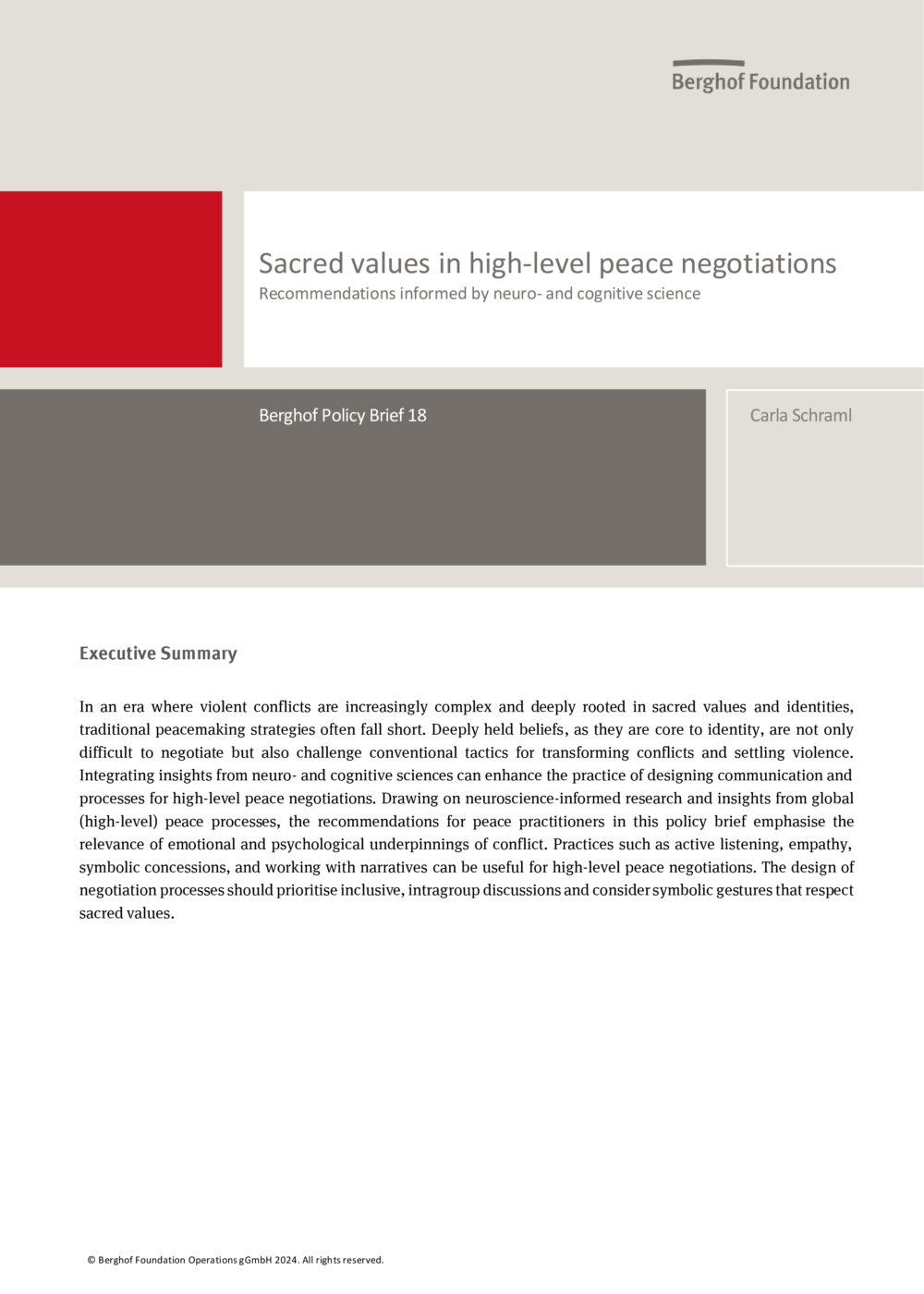
Policy Brief 18: Sacred values in high-level peace negotiationsRecommendations informed by neuro- and cognitive science
In an era where violent conflicts are increasingly complex and deeply rooted in sacred values and identities, traditional peacemaking strategies often fall short. Deeply held beliefs, as they are core to identity, are not only difficult to negotiate but also challenge conventional tactics for transforming conflicts and settling violence. Integrating insights from neuro- and cognitive sciences can enhance the practice of designing communication and processes for high-level peace negotiations. Drawing on neuroscience-informed research and insights from global (high-level) peace processes, the recommendations for peace practitioners in this policy brief emphasise the relevance of emotional and psychological underpinnings of conflict.
- Year2024
- Author(s)Carla Schraml
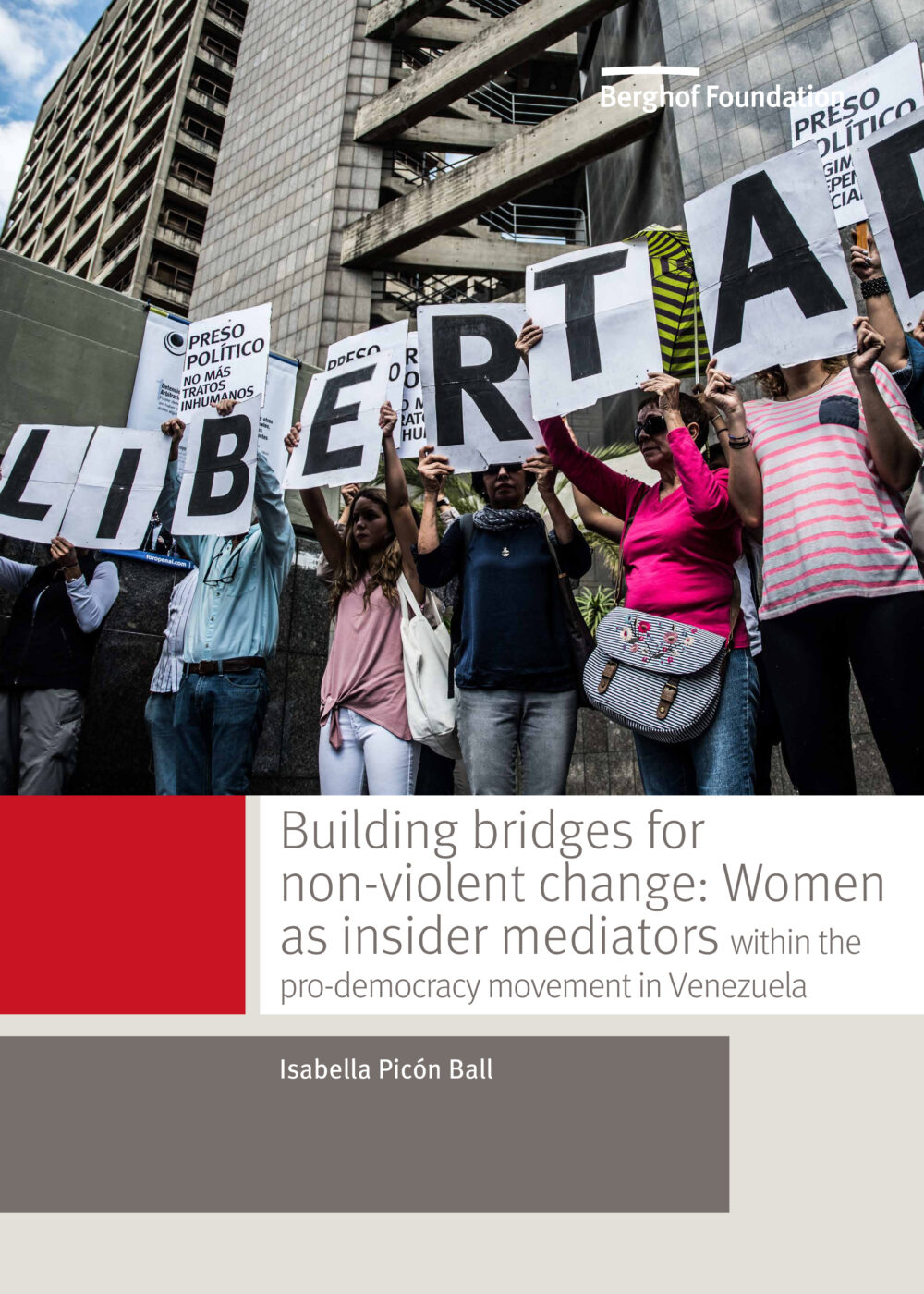
Building bridges for non-violent changeWomen as insider mediators within the pro-democracy movement in Venezuela
As the social, humanitarian and political crises become more acute in Venezuela, social actors who were previously marginalised have acquired more prominent roles within the pro-democracy movement– among them, women. Moreover, for the first time in its history, the Venezuelan opposition has a woman –María Corina Machado – as its main leader. This study stems from the need to understand the strengthened roles of civil society and women in these negotiations and explores the roles of women as insider mediators within the Venezuelan pro-democracy movement.
- Year2024
- Author(s)Isabella Picón Ball
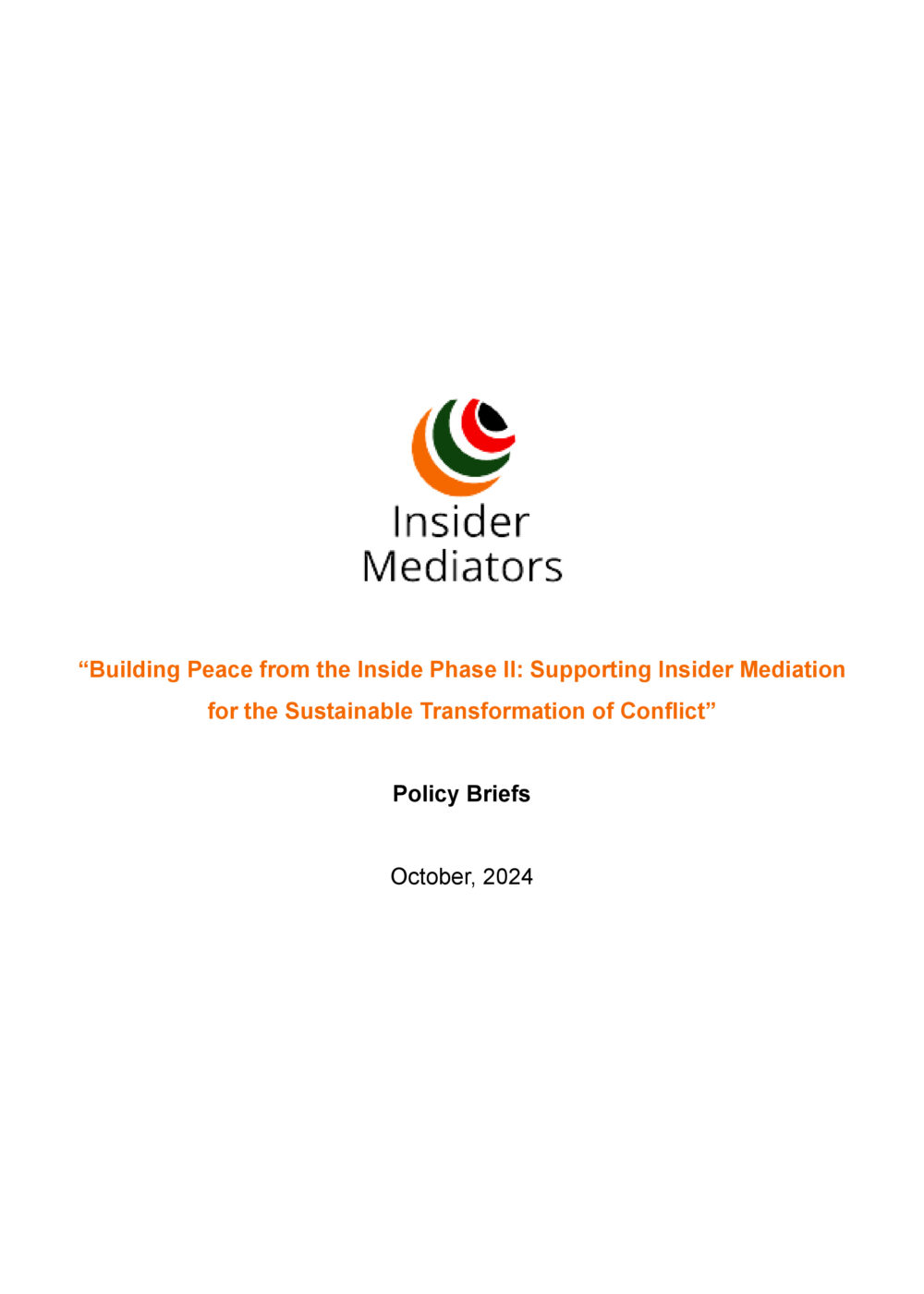
Building peace from the inside phase II: Supporting insider mediation for the sustainable transformation of conflictPolicy briefs
The objective of these short policy briefs is to inform national, regional and international institutions on key topics related to insider mediation and to inform the development of more holistic and supportive policies for insider mediators. While women still face cultural, logistical and security barriers in their participation in local mediations, they are able to play critical and unique roles in mediating family, land, socio-economic, and environmental conflicts, contributing to a high success rate of mediation agreements. The value of building and supporting (informal) networks of insider mediators is key in environments that do not always welcome the contributions of civil society and where more flexible and nimble networks can act as early warning and response mechanisms, raising the chances to achieve sustainable and transformative peace.
- Year2024
- Author(s)Marine Jacob, Claudia Maffettone, Stephanie Sarta, Nura Detweiler, Victoria Cochrane
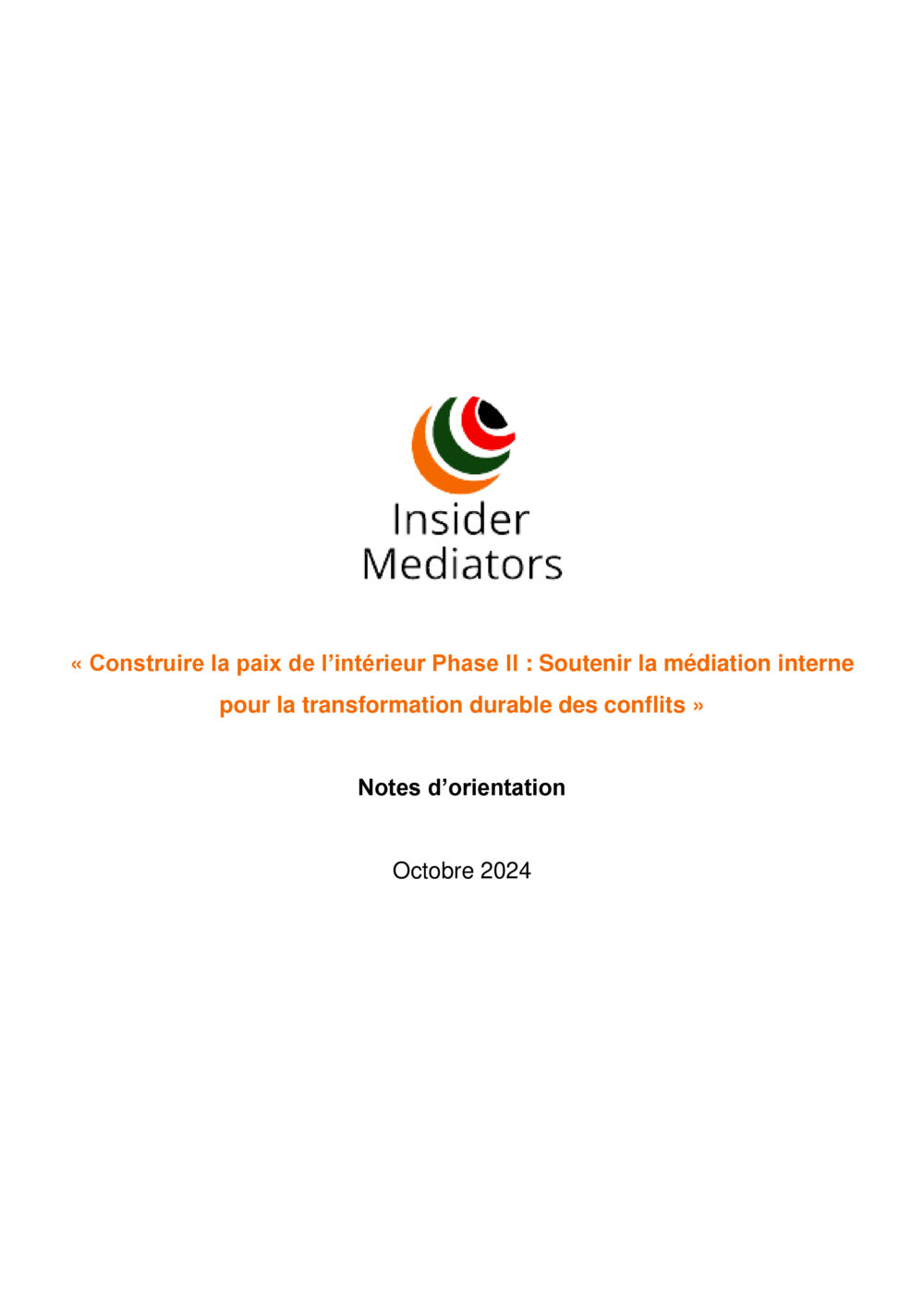
Construire la paix de l’intérieur Phase II : Soutenir la médiation interne pour la transformation durable des conflitsNotes d’orientation
L’objectif de ces brèves notes d’orientation est d’informer les institutions nationales, régionales et internationales sur des sujets clés liés à la médiation interne et d’éclairer l’élaboration de politiques plus holistiques et plus favorables aux médiateurs internes. Bien que les femmes soient toujours confrontées à des obstacles culturels, logistiques et sécuritaires lors de leur participation aux médiations locales, elles sont en mesure de jouer un rôle essentiel et unique dans la médiation des conflits familiaux, fonciers, socio-économiques et environnementaux, contribuant ainsi à un taux élevé de réussite des accords de médiation. La valeur de la création et du soutien de réseaux (informels) de médiateurs internes est essentielle dans des milieux qui n’accueillent pas toujours favorablement les interventions de la société civile et où des réseaux plus souples et plus agiles peuvent servir de mécanismes d’alerte et de réponse précoces, augmentant ainsi les chances de parvenir à une paix durable et transformatrice.
- Year2024
- Author(s)Marine Jacob, Claudia Maffettone, Stephanie Sarta, Nura Detweiler, Victoria Cochrane
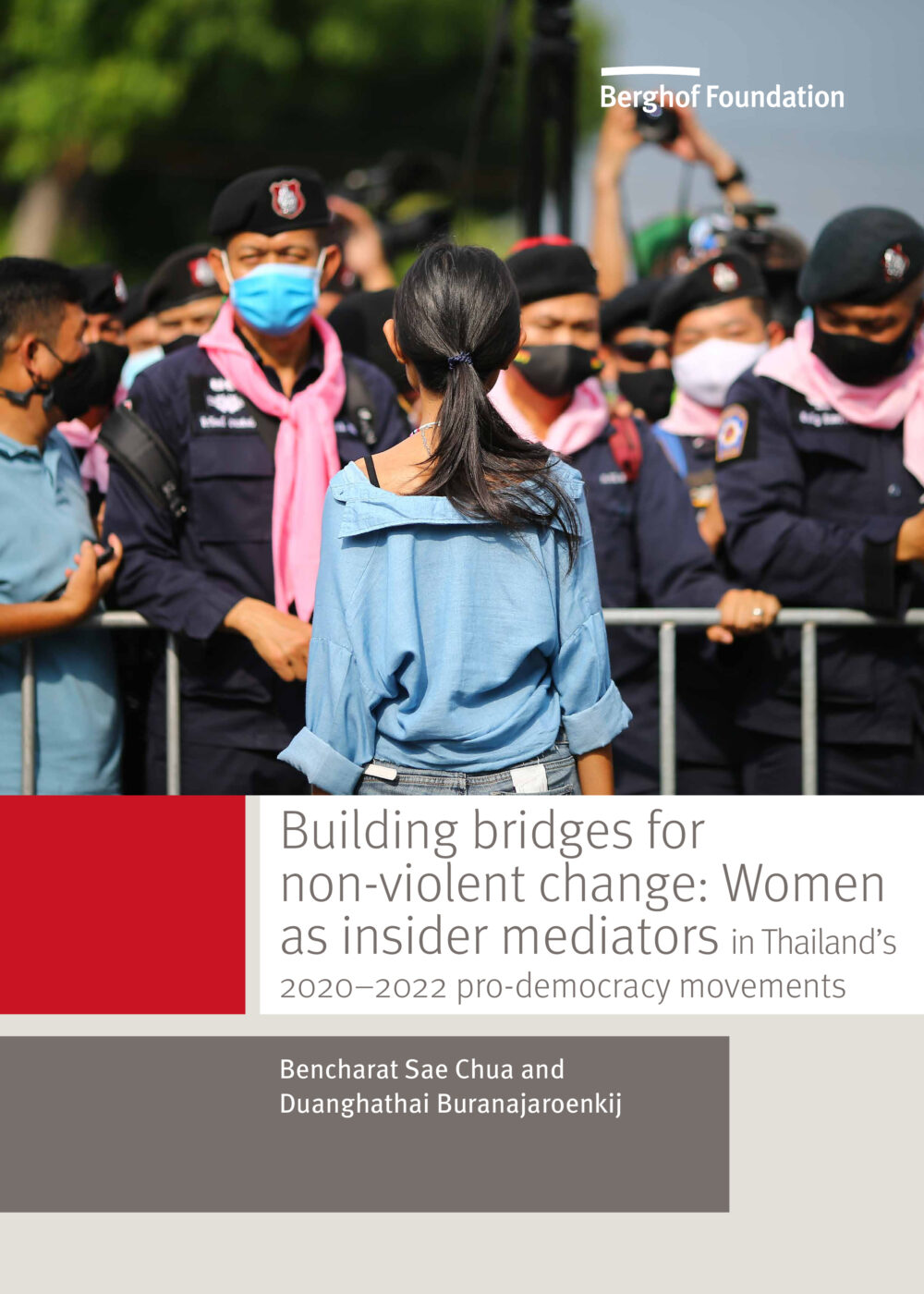
Building bridges for non-violent changeWomen as insider mediators in Thailandʼs 2020–2022 pro-democracy movements
The youth-led pro-democracy protests in Thailand from 2020-2022 represented a major turning point in the country’s political landscape. Women played prominent roles, demonstrating resilience and leadership throughout the movement. This research report focuses on women’s roles as insider mediators in resolving conflicts between protesters and authorities, examining the gender dynamics at play. It also explores strategies to support women in sustaining their mediation roles, providing recommendations for enhancing their capacities and effectiveness.
- Year2024
- Author(s)Bencharat Sae Chua, Duanghathai Buranajaroenkij
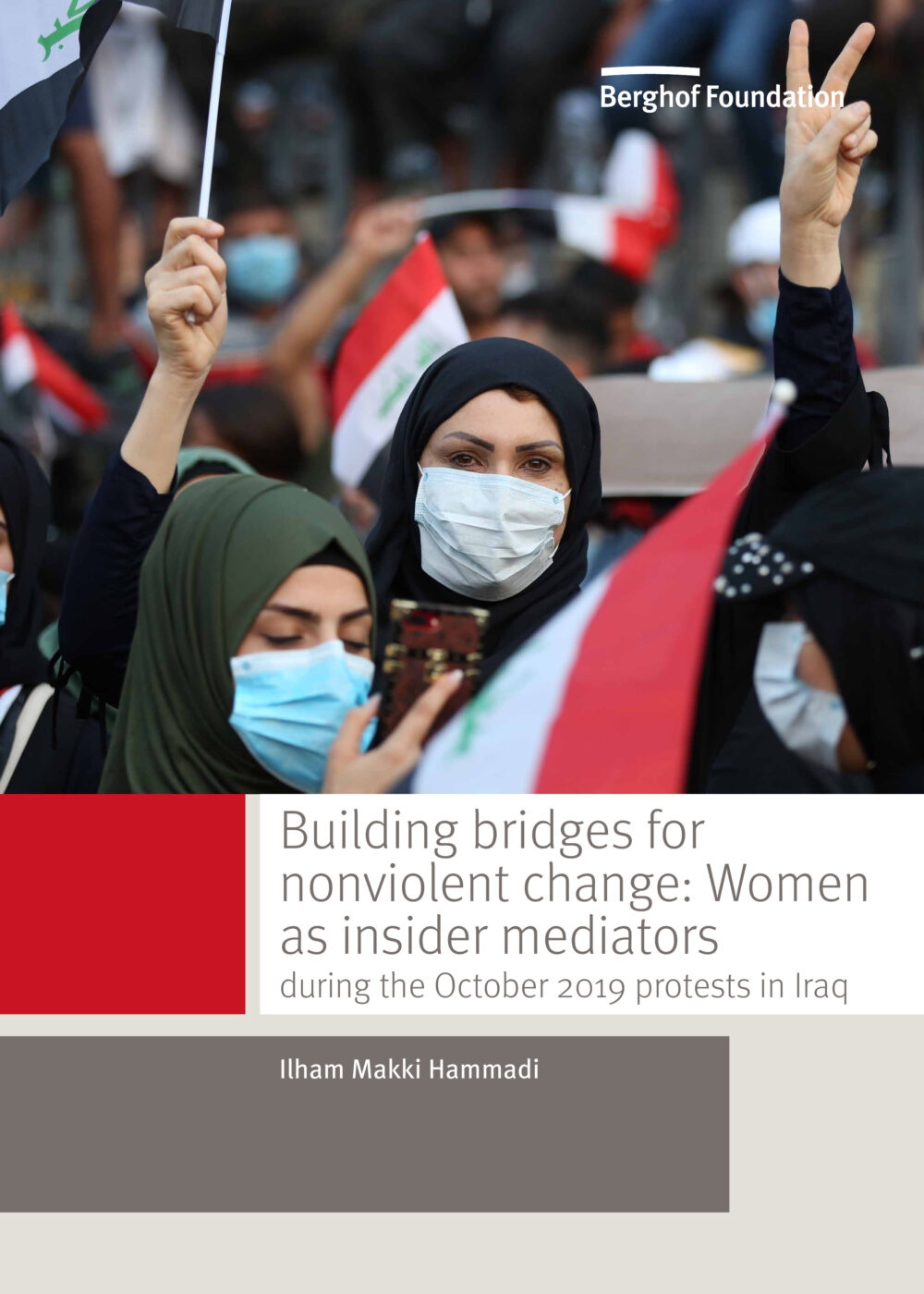
Building bridges for nonviolent changeWomen as insider mediators during the October 2019 protests in Iraq
The October 2019 protests in Iraq were notable for their scale, spontaneity, and widespread participation, particularly by young people and women. This report documents the roles of Iraqi women as insider mediators within the movement, highlighting their efforts to maintain peace and build trust among protesters, police, and other stakeholders. Based on interviews with activists across five governorates, the report also examines the gender dynamics and challenges these women faced in mediation, offering insights into their capacity-building needs.
- Year2024
- Author(s)Ilham Makki Hammadi
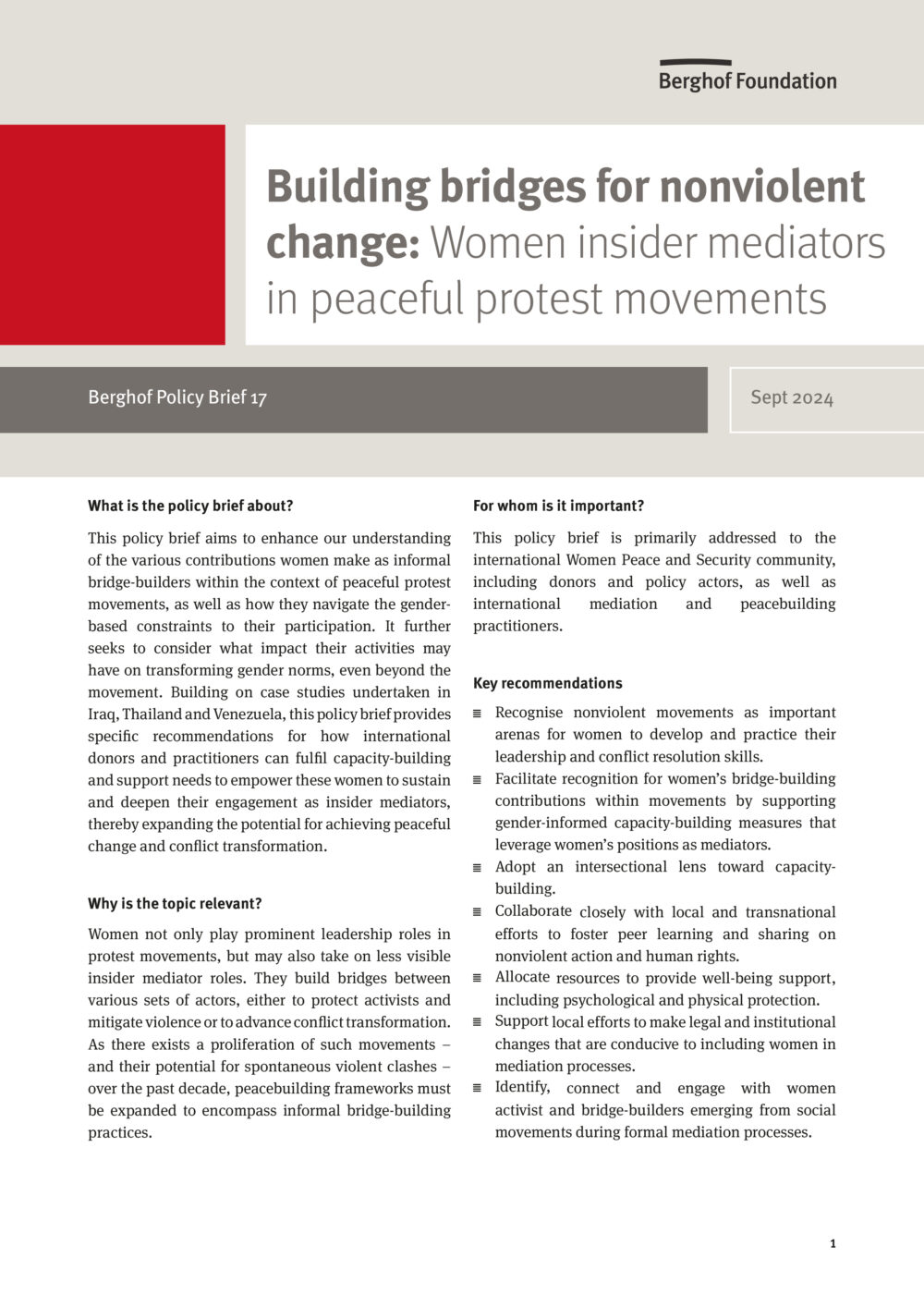
Policy Brief 17: Building bridges for nonviolent changeWomen insider mediators in peaceful protest movements
This policy brief examines the critical roles of women as insider mediators in peaceful protest movements (PPMs) across Iraq, Thailand, and Venezuela. Based on qualitative interviews and case studies, this brief highlights how these women build bridges between diverse actors and offers recommendations for empowering them to deepen their mediation roles. The findings aim to inform international policy actors and enhance support for sustainable peacebuilding.
- Year2024
- Author(s)Véronique Dudouet, Johanna-Maria Hülzer